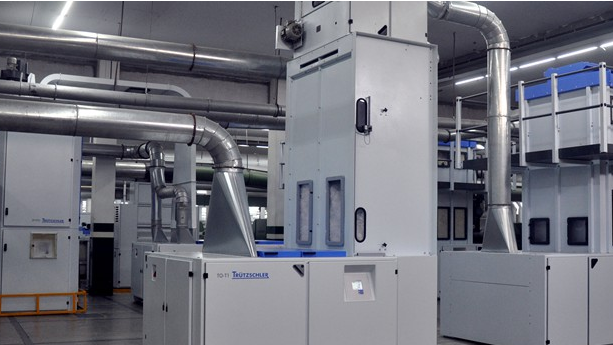Our November 2015 lead feature ‘Indian Textile Machinery:
Problems and Prospects’ had concluded that the scope of growth for the Indian textile machinery sector was phenomenal. In June this year, the overview piece ‘Textile production fuelling growth for machinery’ had outlined that the global textile machinery industry would grow at a healthy rate of 13.8 per cent on account of the healthy growth in the textiles and apparel industry itself, besides increasing demand of technical textile products across various sectors in emerging economies. Subir Ghosh now conflates all the findings and forecasts with two new realities: Brexit and GST.
The keywords when determining the outlook for an industry, by and large are drivers, restraints and opportunities. Each, again, can be broken down into innumerable factors. The interplay of all these, in turn, may make for a chaotic situation. Whether there is a method in this madness is what usually makes the bottomline. It is also inevitable that both perspectives and forecasts may vary.
This writer sought the opinion of two experts on the subject of textile machinery, and saw them in the light of two articles that this magazine has published in the last twelve months: first, the lead feature of November 2015 titled ‘Indian Textile Machinery: Problems and Prospects’; second, the overview article of June 2016 titled ‘Textile production fuelling growth for machinery’.
Broadly, not much has changed since these two articles were published, except two crucial elements: the Goods and Services Tax (GST) now becoming a foregone conclusion, and June 2016 referendum on the United Kingdom’s withdrawal from the European Union (EU), Brexit for short.
Seema Srivastava, executive director of India International Textile Machinery Exhibitions Society (India ITME Society), feels the decision of the UK to leave the EU will certainly have an impact on India. “However, one should not be worried about the development as the transition is going to be slow, and also more details are to be expected,” she says.
But then she clarifies that there will be no impact of Brexit on the Indian textile machinery industry. “Since India’s exports and imports business of textile machinery with Britain are meagre, Brexit will not have any major impact on the textile machinery business,” Srivastava insists.

Leave a Reply
You must be logged in to post a comment.